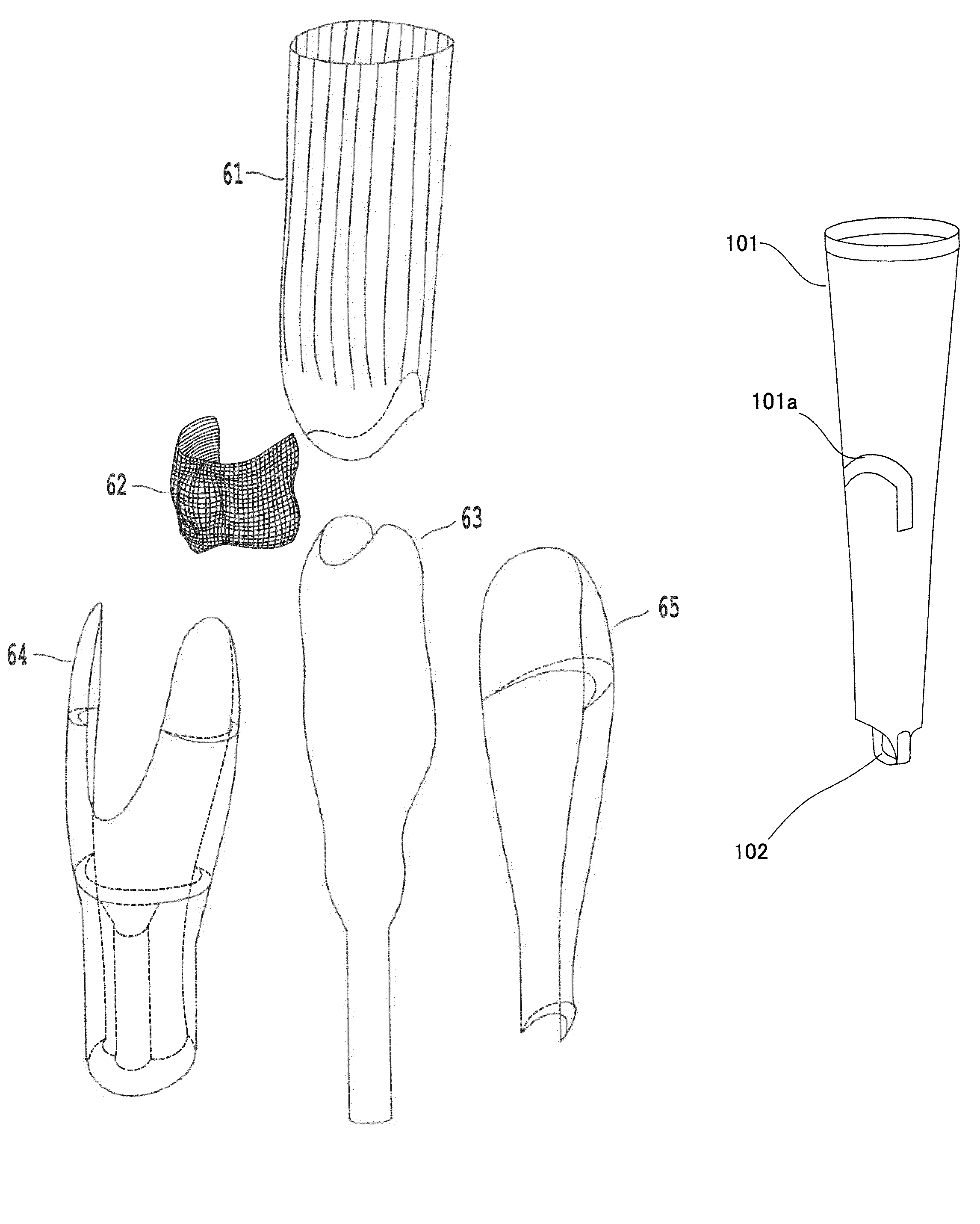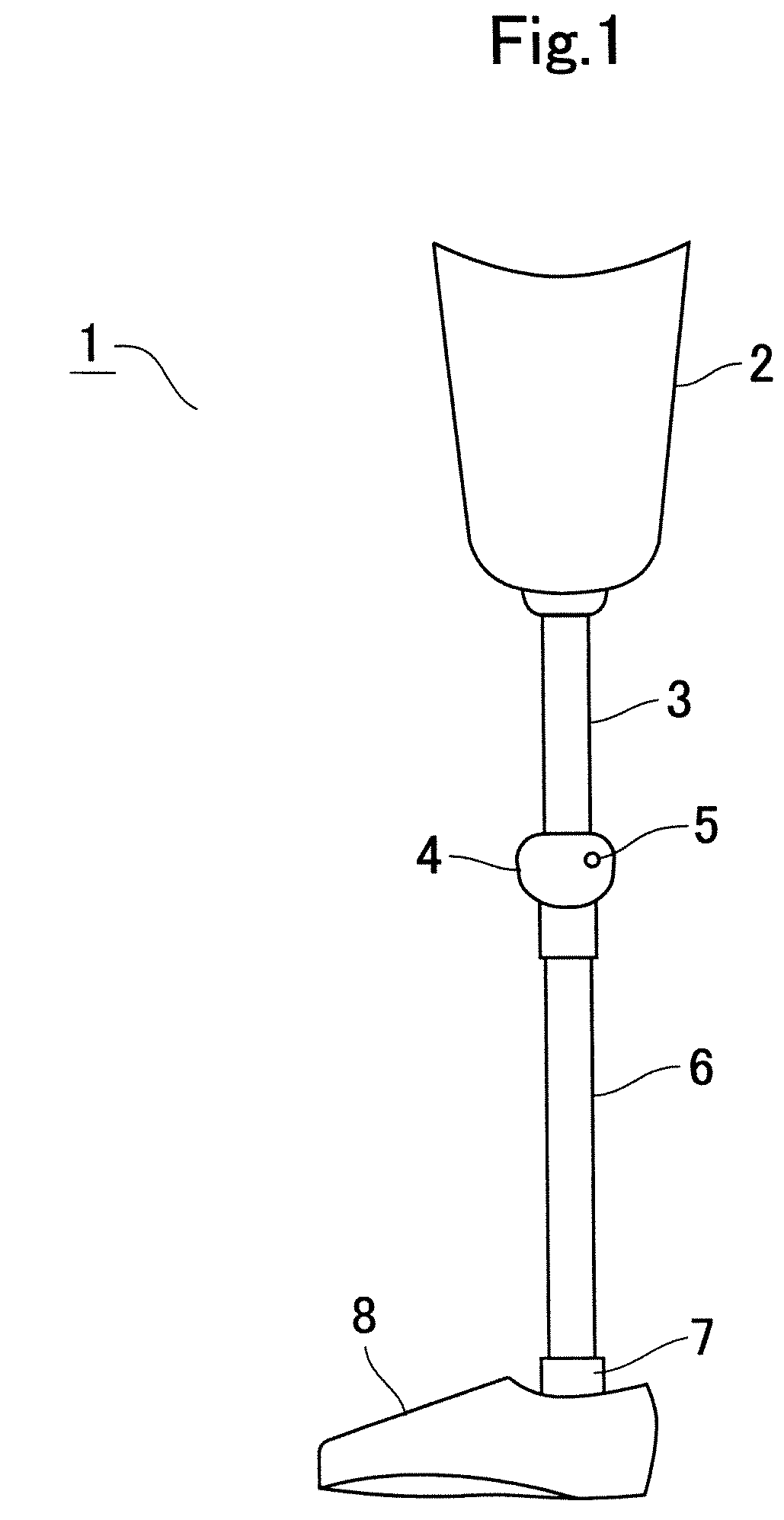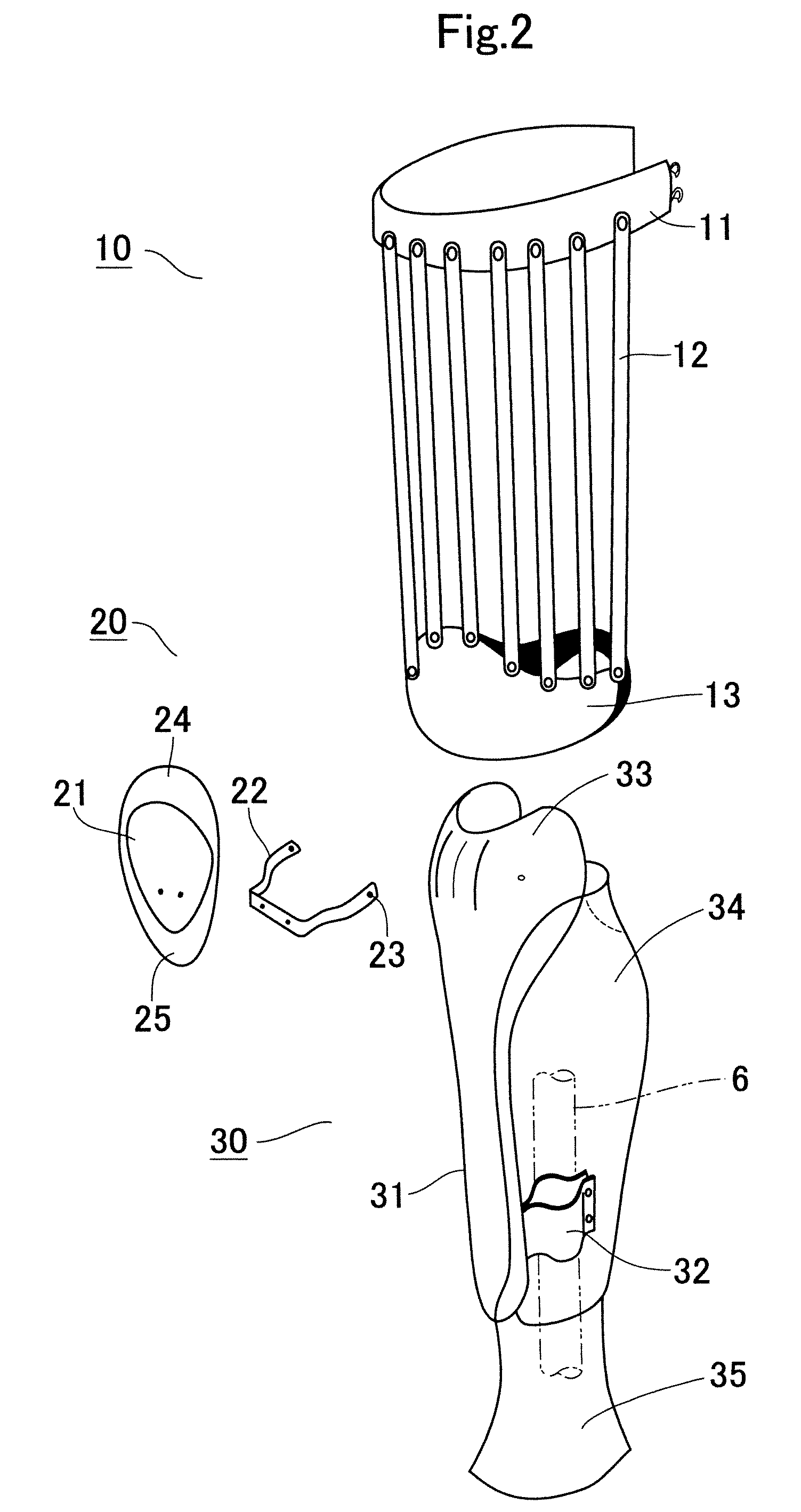Modularized prosthesis leg cover
a technology of prosthesis and leg covers, applied in the field of prosthesis legs, can solve the problems of difficult cutting, disadvantages of conventional soft and one-piece prosthesis leg covers made of urethane foam, and increase production costs, so as to reduce the number of parts, easy production, and the effect of increasing productivity
- Summary
- Abstract
- Description
- Claims
- Application Information
AI Technical Summary
Benefits of technology
Problems solved by technology
Method used
Image
Examples
first embodiment
[0041]FIG. 2 is an exploded perspective view illustrating parts of the modularized prosthesis leg cover according to the present invention. As shown in the drawing, the prosthesis leg cover comprises: a thigh module 10, which is mounted to the thigh socket 2 and surrounds the thigh 2; a patella module 20, and a lower leg module 30, which is mounted to the lower leg pipe 6 and surrounds the lower leg pipe 6. The thigh module 10 comprises: a proximal annular band 11, which surrounds the proximal part of the thigh of the patient; a plurality of longitudinal strips 12 mounted to the proximal annular band 11; and a distal annular band 13, which is mounted to the distal ends of the longitudinal strips 12. Thus, the thigh module 20 has a basket appearance. The proximal annular band 11 is preferably attached to the thigh socket 2 of the prosthesis leg 1 using a Velcro fastener. The plurality of longitudinal strips 12 and the distal annular band 13 are preferably made of a plastic material, ...
second embodiment
[0048]FIG. 5 is an exploded perspective view illustrating a skin module according to the present invention, which functions as a support, instead of the stay, for supporting a patella part. In this embodiment, the skin module 53 covers both a thigh shell 51 and a lower leg shell 52. The skin module 53 comprises contractible tights made of a stretchable fiber. FIG. 5 shows that the skin module 53 is folded down at the kneecap. The skin module 53 is provided with an inside pocket 54, which has a lid flap and is provided on the rear portion of the skin module 53 at a position diametrically opposite the knee joint part. The inside pocket 54 receives a patella part 55 therein. The patella part 55 comprises: a hard resin layer 55A, which is made of a hard synthetic resin and forms a rear layer of the patella part 55; a soft middle layer 55B, which is made of soft urethane foam; and a leather layer 55C, which forms an outside layer of the patella part 55. When the patella part 55 is config...
third embodiment
[0051]FIG. 7 is a rearview illustrating the prosthesis leg cover of the present invention. In FIG. 7, the lower leg front pad 64 and the lower leg rear pad 65 are not shown. When the thigh module 61, the patella module 62 and the lower leg module 63 are assembled with each other to form a prosthesis leg cover, two protrusions 62a, which are formed on opposite sides of the rear part of the patella module 62, are inserted into respective grooves 67 and 68, which are provided between a lower round surface 61a of the thigh module 61 and an upper round surface 63a of the lower leg module 63 and are formed from the front part to the opposite sides of the knee joint part. Due to the engagement of the two protrusions 62a with the respective grooves 67 and 68, the location of the patella module 62 can be more reliably set. Thus, the patella module 62 can execute a motion similar to that of a real leg.
PUM
 Login to View More
Login to View More Abstract
Description
Claims
Application Information
 Login to View More
Login to View More - R&D
- Intellectual Property
- Life Sciences
- Materials
- Tech Scout
- Unparalleled Data Quality
- Higher Quality Content
- 60% Fewer Hallucinations
Browse by: Latest US Patents, China's latest patents, Technical Efficacy Thesaurus, Application Domain, Technology Topic, Popular Technical Reports.
© 2025 PatSnap. All rights reserved.Legal|Privacy policy|Modern Slavery Act Transparency Statement|Sitemap|About US| Contact US: help@patsnap.com



